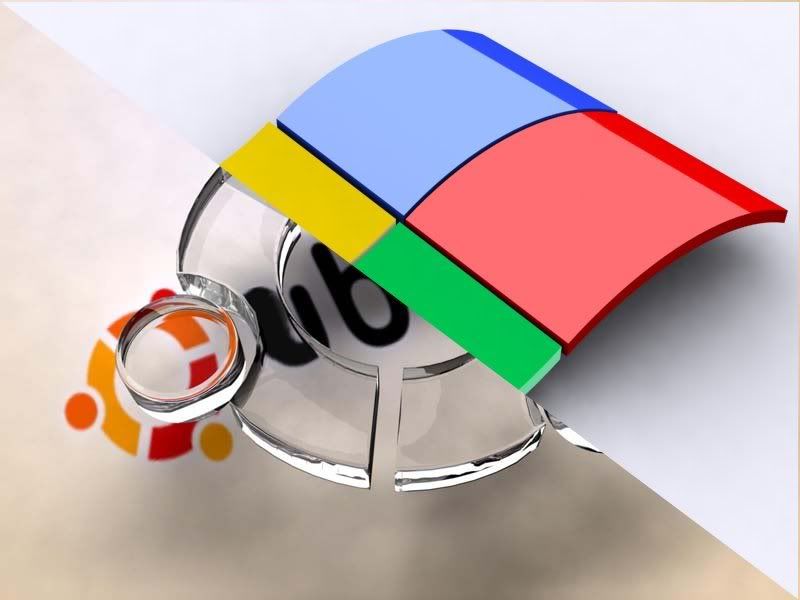If you're an Ubuntu newbie, then you must have used Windows until recently so you are really used to it and most of all, of it's software. But there are a lot of great similar applications for Linux / Ubuntu, so here is a list so you'll know what to look for when needing an application (on the left: Windows apps, on the right: Linux / Ubuntu apps):
Windows Media Player / BSPLayer: vlc, Totem
Winamp, iTunes: Amarok (KDE), Exaile, Rhythmbox, XMMS, BMP, Audacious, Banshee
uTorrent / Bittorrent: Transmission, Deluge-torrent, KTorrent (KDE), Azureus
Nero Burning ROM: Brasero, k3b (KDE), Serpentine
Windows Movie Maker: Avidemux, Kino (KDE). You can find a full lists and installation howtos, here.
3D Studio MAX, Blender, Maya: Blender, Maya, Softimage, K-3D (KDE)
Internet Explorer (seriously, did you used that on Windows?): Firefox, Opera, Konqueror, Epiphany
Outlook: Thunderbird, Evolution
Microsoft Office: Open Office, AbiWord, KWord
ICQ, MSN Messenger, AIM, Yahoo Messenger, etc: all of them: Pidgin, Kopete, aMSN, KICQ
any FTP Client: FileZilla, GFTP, KFTP (KDE)
Photoshop: GIMP
Irfanview, ACDSee: XnView, GQView, Mirage
Audacity, CoolEdit, Audio Catalyst: Ardour, Rosegarden, Audacity, Beast
GuitarPro: TuxGuitar
Daemon Tools: gmount-iso
Partition Editor, Partition Magic: QTparted, GParted
Antivirus software: no need ;)
Zone Alarm or any firewall: Guarddog, Firestarter
And the list could go on forever but i'm going to stop here.
Of corse, a lot of applicatons that work on Windows also work on Linux / Ubuntu (some are ported, some native. Actually some are ported from Linux to Windows), such as: Skype, Azureus, VLC, Firefox, Opera, Thunderbird, Deluge-torrent, Gimp, FileZilla, Audacity, Open Office.
To install an application just type in a terminal: sudo apt-get install APPLICATION_NAME as listed above but most of them might be already installed. If it doesn't work, try searching for it in Synaptic: go to System > Administration > Synaptic Package Manager and search for it.
"(KDE)" next to an applications means it runs on KDE, but will work on Gnome too but it will install some KDE libraries.
Don't forget to read the other parts of Ubuntu Newbie Guide.
Windows Media Player / BSPLayer: vlc, Totem
Winamp, iTunes: Amarok (KDE), Exaile, Rhythmbox, XMMS, BMP, Audacious, Banshee
uTorrent / Bittorrent: Transmission, Deluge-torrent, KTorrent (KDE), Azureus
Nero Burning ROM: Brasero, k3b (KDE), Serpentine
Windows Movie Maker: Avidemux, Kino (KDE). You can find a full lists and installation howtos, here.
3D Studio MAX, Blender, Maya: Blender, Maya, Softimage, K-3D (KDE)
Internet Explorer (seriously, did you used that on Windows?): Firefox, Opera, Konqueror, Epiphany
Outlook: Thunderbird, Evolution
Microsoft Office: Open Office, AbiWord, KWord
ICQ, MSN Messenger, AIM, Yahoo Messenger, etc: all of them: Pidgin, Kopete, aMSN, KICQ
any FTP Client: FileZilla, GFTP, KFTP (KDE)
Photoshop: GIMP
Irfanview, ACDSee: XnView, GQView, Mirage
Audacity, CoolEdit, Audio Catalyst: Ardour, Rosegarden, Audacity, Beast
GuitarPro: TuxGuitar
Daemon Tools: gmount-iso
Partition Editor, Partition Magic: QTparted, GParted
Antivirus software: no need ;)
Zone Alarm or any firewall: Guarddog, Firestarter
And the list could go on forever but i'm going to stop here.
Of corse, a lot of applicatons that work on Windows also work on Linux / Ubuntu (some are ported, some native. Actually some are ported from Linux to Windows), such as: Skype, Azureus, VLC, Firefox, Opera, Thunderbird, Deluge-torrent, Gimp, FileZilla, Audacity, Open Office.
To install an application just type in a terminal: sudo apt-get install APPLICATION_NAME as listed above but most of them might be already installed. If it doesn't work, try searching for it in Synaptic: go to System > Administration > Synaptic Package Manager and search for it.
"(KDE)" next to an applications means it runs on KDE, but will work on Gnome too but it will install some KDE libraries.
Don't forget to read the other parts of Ubuntu Newbie Guide.


